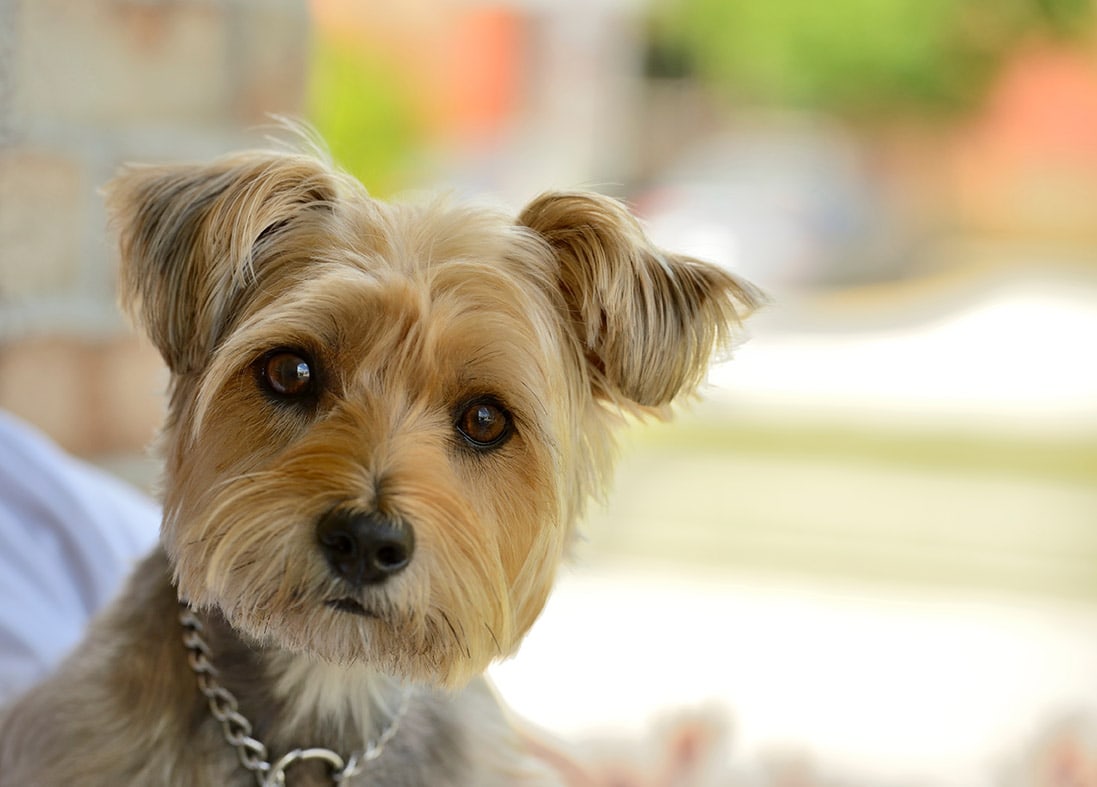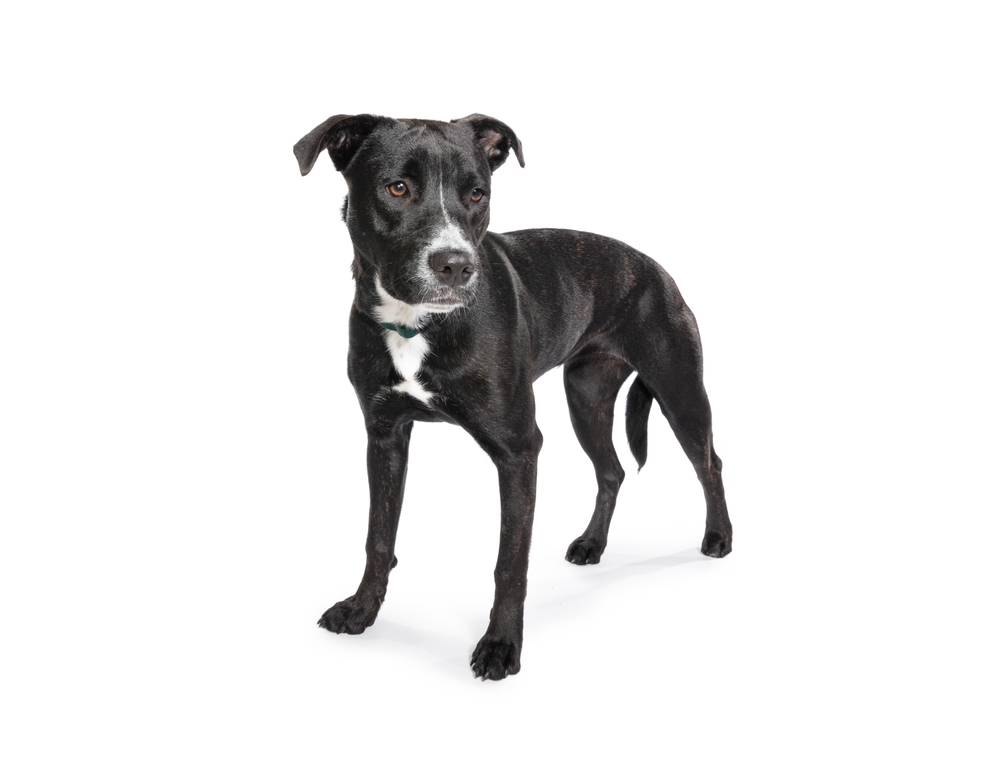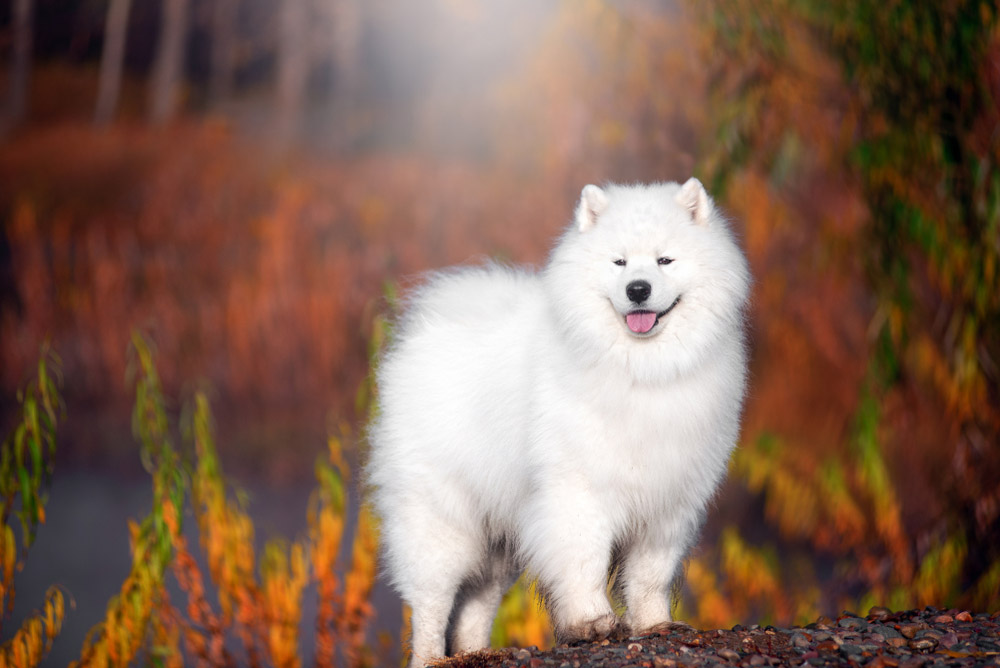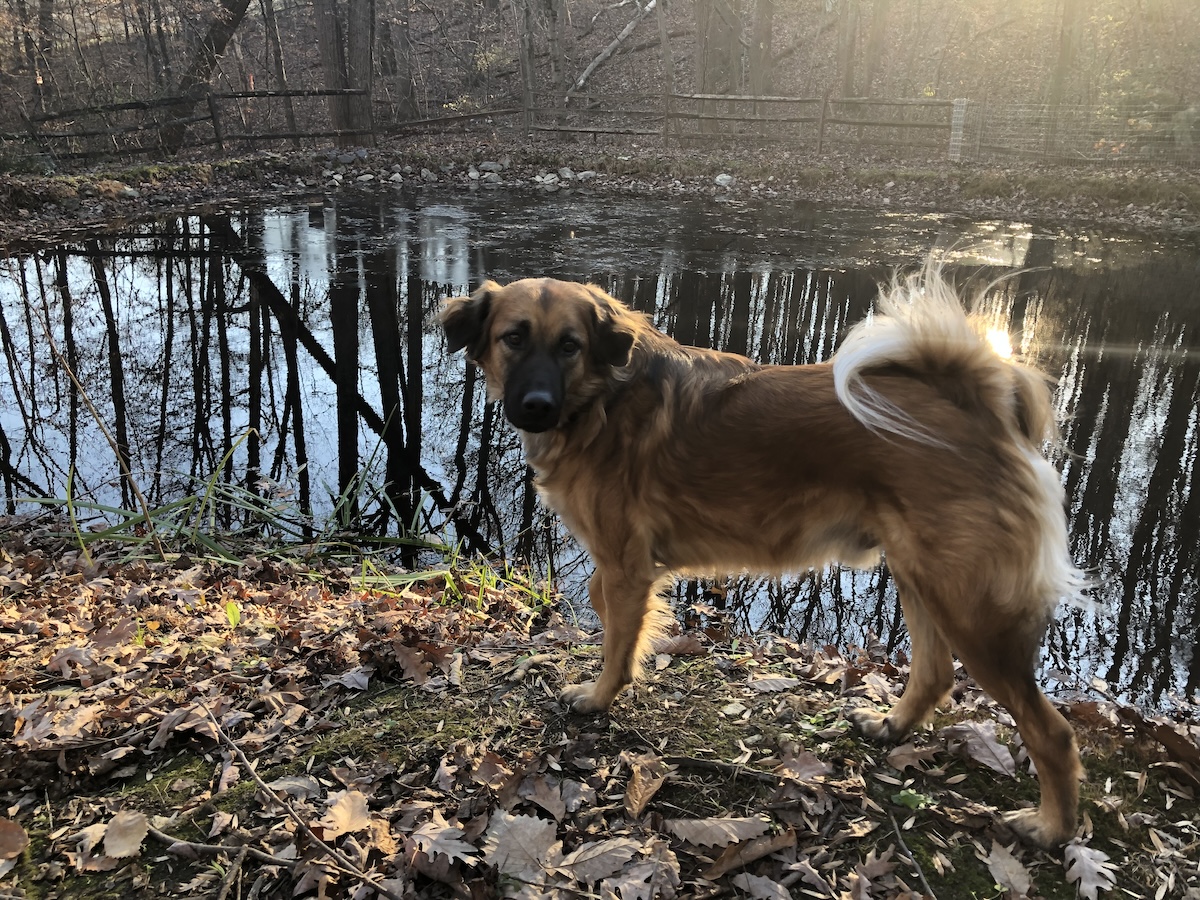Click Below to Skip Ahead
Carkies are a cross of two Terrier breeds: the Cairn Terrier and the Yorkshire Terrier. While both are popular canines, the Yorkie is a top-20 favorite in America, according to the AKC. Luckily, the Carkie inherits most of the Yorkie’s great traits that propel them to such popularity, along with a few desirable traits from the Cairn Terrier side of the family.
Breed Overview
Height:
8–12 inches
Weight:
8–15 pounds
Lifespan:
12–15 years
Colors:
Tan, brown, white, black, grey
Suitable for:
Families and individuals who are home most of the time
Temperament:
Energetic, affectionate, intelligent, adaptable, sweet, loyal
Carkies exhibit all of the true Terrier traits that make them so beloved. They’re incredibly loyal little dogs that want to curl up on your lap and take all your affection. At the same time, they are sturdy, resilient canines with a hunting background, cunning intellect, and impressive athleticism that you might not expect based on appearances.
Highly social Carkies get along with just about everyone, though they are wary of strangers. Thankfully, the Cairn Terrier inside the Carkie tempers the excessive barking Yorkies are known for, though you might hear them bark when strangers are present. The grooming needs are considerable with the Carkie, but their sweet demeanor makes up for the extra maintenance requirements.
Carkie Characteristics
Carkie Puppies
The problem with newer designer breeds like the Carkie is that no breed standards are defined yet. Similarly, there are no set prices, so the cost of a Carkie can range dramatically. There also aren’t many reputable breeders currently putting their time into the breed, which can make it harder to find a safe source to purchase your Carkie from.
If you work from home or spend a lot of time at home, this tiny pup may be the dog for you if you can find one.

Temperament & Intelligence of the Carkie
There’s little doubt that the Carkie’s cute appearance earns them many fans, but the dog’s temperament makes them special. They are the ultimate companion dogs. They have endless amounts of love to give, and they want all the affection their owners can muster. In fact, your Carkie will never want to leave your side, and when you leave them home alone, they’re likely to experience separation anxiety.
Carkies are incredibly social dogs, and though they’re sometimes a bit wary of strangers, they get along with practically everyone. Sometimes, they get too excited and can’t contain themselves, which is why proper training and socialization from a young age is so important with a Carkie.
Are These Dogs Good for Families? 👪
Since they’re such friendly dogs, Carkies are a perfect fit for family life. They want to be near someone all the time. For individuals, this can be difficult, especially if you work long hours away from home or travel frequently. With a family, there are more people present, so someone is likely home more of the time, which means your Carkie won’t be alone and subject to problems like separation anxiety.
Does This Breed Get Along With Other Pets? 🐶 😽
For the most part, the Carkie’s friendliness spreads to other animals. They can get along well with bigger dogs without much problem, though smaller dogs can sometimes be an issue. Remember, the Carkie comes from two Terriers bred to hunt and kill rats, foxes, badgers, and other small, furry mammals.
Even though they’re far removed from the time Terriers were working dogs, hunting is still in their genes today. Therefore, many Carkies exhibit a noticeable prey drive that might be triggered when smaller dogs are around. Regular socialization from a young age can mitigate the issue, but you should be aware that Carkies have a natural instinct to hunt.
Things to Know When Owning a Carkie:
Food & Diet Requirements 🦴
With an average weight of just 8–15 pounds, Carkies are pretty small pups and don’t require too much food. Overfeeding such a small dog is easy, so you’ll want to pay close attention to how much food you’re offering your Carkie. They do best on a high-quality dry kibble specifically formulated for small-breed dogs. Since Carkies are resilient and healthy dogs, they don’t have any specific nutritional requirements you’ll have to meet.
Exercise 🐕
Carkies love to play and have enough energy to spend hours playing at a time. They’re also very adventurous pups, loving to explore and ever-curious about the world around them. With so much energy stored inside, your Carkie will need plenty of exercise and engagement.
Thankfully, they’re pretty small dogs, so you won’t have to devote hours to their exercise each day like you have to with some larger breeds. Your Carkie will do well with a few short walks throughout the day and a couple of high-intensity play sessions to burn off their excess energy.
Training 🎾
When it comes to training, Carkies are generally a joy. They’re highly intelligent and eager to please, and they are easier to train than many breeds. They genuinely want to make their owners happy, so as long as you use plenty of positive reinforcement, training your Carkie shouldn’t be too difficult, even for a newbie dog trainer.
Grooming ✂️
Unfortunately, Carkies require quite a bit of upkeep and maintenance. Their coats are usually medium in length and a bit shaggy. The hair will tangle and mat very quickly, so daily brushing is required. You’ll want to use a firm bristle brush and a Greyhound comb to keep the coat looking lively. On the bright side, Carkies don’t really drool, and even though their coat needs a lot of grooming, they hardly shed.
Bathing should occur no more than once every 6–8 weeks. Bathing them too often can remove their natural oils and damage their skin. Additionally, basic trimming of the nails and cleaning of the ears will be required.
Health and Conditions ❤️
Carkies are incredibly resilient, healthy, and not susceptible to many health concerns. There are just two conditions that you should keep an eye out for when raising a Carkie.
- Reverse Sneezing
- Hypothyroidism
Minor Conditions:
Reverse Sneezing: Paroxysmal respiration, more commonly known as reverse sneezing, is pretty common in canines. It’s essentially the opposite of a sneeze. Instead of air being expelled through the nose, it is rapidly inhaled, creating a loud snort, as if your dog is inhaling and sneezing simultaneously.
Serious Conditions:
Hypothyroidism: The thyroid is a hormone-producing gland that regulates metabolism. When the thyroid malfunctions, metabolic processes are thrown out of whack. Hypothyroidism occurs when the thyroid is underproducing hormones, causing the metabolism to slow down.
Male vs. Female
The most obvious differences between male and female Carkies are physical. Males tend to be larger and heavier, but there are also temperamental differences between the sexes. For example, females tend to let their owners know when they want affection and when they’re done with it, while males will just wait patiently for whatever attention is thrown their way.
Males are also more likely to exhibit dominating behaviors. Of course, the most significant differences are individual, so there’s no guarantee that your dog will conform to the behaviors most often displayed by other members of their sex.
3 Little-Known Facts About the Carkie
1. Hunting Is in Their Genes
Terriers are small, spunky little dogs with lots of personality. The Carkie comes from two sets of Terriers bred for hunting purposes. Today, the Yorkie might be strictly a companion pet that spends time getting expensive hairdos and cuddling with urbanites, but long ago, Yorkshire Terriers spent their lives slinking around the mines and mills of northern England. They were useful animals, killing rats and burrowing underground to chase foxes and badgers.
Cairn Terriers were initially bred for similar purposes, though they worked in the Scottish countryside, hunting foxes and similar small, furry prey. Naturally, the Carkie, the offspring of two fearless hunters, has the same propensity for chasing down and catching small creatures, and it’s part of where they get their spunky personalities that are so much bigger than their little bodies.
2. The Breed’s Origins Are Unknown
Carkies haven’t been around long, only for a few decades. Most breeds with such recent beginnings are well documented. We know how they were created, who did the work, who the first specimens were, where they were bred, and more. However, that is not the case with Carkies. The breed’s origins are unknown despite their recent creation.
3. They’re Great Dogs for Germaphobes
Carkies require a lot of care and upkeep, but they’re incredibly clean and hygienic dogs that are a great fit for someone concerned with the germs that a dog might bring. While most dogs emit strong odors, Carkies don’t. They also don’t drool, and they hardly shed at all. Moreover, Carkies are considered hypoallergenic dogs and may be suitable for owners with allergies.
Final Thoughts
If you’re looking for a dog with undying loyalty, plenty of energy, and a spunky personality, the Carkie might be a good fit. They’re loving and affectionate dogs that want all of your attention and don’t do well being left alone for long periods, which is why they’re a great fit for families. Even though Carkies are very active and energetic dogs, they don’t need outrageous amounts of exercise or space due to their small size. They have high-maintenance grooming requirements, but they make up for it by being resilient, healthy dogs with very few health concerns for you to worry about.
- Looking for more crossbreeds? We have a full suite of both Cairn Terrier Mixes and Yorkshire Terrier Mixes!
Featured Image Credit: Jason Brubacher, Shutterstock











